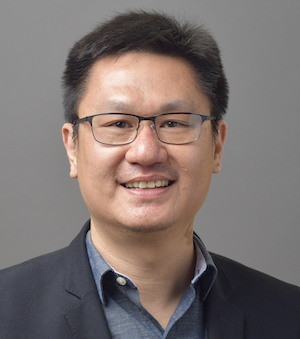April 2, 2020
In the past couple of months, we saw how the COVID-19 virus developed from a regional epidemic to a global pandemic. Countries, states, and cities began to implement lockdown and quarantine measures, social institutions and organizations started to close down their offices and facilities, and people were asked to practise social distancing and, in some cases, self-isolate. Emmanuel Bible College has not been spared from the effects of the virus. We temporarily moved to all-online teaching on March 16 and closed our offices on March 20. These decisions have been part of our immediate response as a Christian institution to the ongoing policies and procedures being set forth by our provincial and federal governments. But we know that there are other important concerns that we must address.
A more important concern that confronts our college is the implications of this global pandemic, along with all the social and educational ramifications it is beginning to create, on higher education in general and Christian higher education in particular. Some might say that we are in yet another transitional period of history and that we in Christian education need to adapt based on what will be easiest for us. Others might see it as a timely opportunity to switch permanently to all-online education. But as a faculty member of Emmanuel, I see this global crisis as having lasting spiritual consequences to which we must pay special attention because of our God-given mandate and mission and because we deeply care for the spiritual formation and academic education of our current and future students.
Our world is gradually moving almost everything into virtual modalities, transitioning from a cash-based to a nearly cashless economy and transforming traditional social structures into new ones that increasingly embrace individual freedom and rights. This is the reality of the twenty-first century. Whether we are heading in the right direction is not the important question to ask at this point. What is important is that we at Emmanuel recognize the urgent need to respond responsibly to the current situation in order to best serve our students and constituents. So, I have been constantly asking myself lately whether e-learning is the only appropriate response to this changing reality.
A little less than two decades ago, one of my professors at Trinity Theological Seminary used to say in his lectures that “we shouldn’t let this world squeeze us into its mould.” As I was teaching from my desk the other day, that was exactly how I felt. I feel that we are being pushed to provide education in this new, virtual reality. Do we have a choice not to follow this trend? Will Christian higher education see a brighter future in this new learning format called e-learning?
E-learning has both advantages and disadvantages. Online classes can be a convenient learning alternative for many students, especially mature students. But we also know that not everything that is convenient is beneficial. Our broad base of young students, some of them having just transitioned from high school, long for a social community where they can make new friendships through face-to-face interaction, and they also need hands-on mentoring and supervision.
In a recent communication sent to me by our president, Dr. Stephen Roy, he reiterated that we at Emmanuel “have a commitment to classroom-based learning, and we believe in community and learning in community. We know the value of relationship and how young people today benefit from strong mentoring relationships with older adults, especially in a faith-community setting.” I agree. God created this world to be a physical community of people who would one day stand before and worship him (Rev 7:9). The institutions of the church, marriage, and holy communion are examples of this God-created order.
We live in difficult times, and as the cliché goes, desperate times call for desperate measures. And so often, desperate measures propel us to follow societal trends so that we can be responsive. However, as we look to the future and consider how this crisis may shape our society and the ways in which educational institutions operate, we continue to uphold our current approach to education. So, while our campus classrooms may be empty for the time being, we will continue to welcome those who are called to learn with us in person (classroom, or face-to-face, learning) or through a mix of in-person and online modes (hybrid, or blended, learning) as well as those who are called to study exclusively through online means (Live Online or Distance Education learning). In doing so, we will continue to call on God to be with us and to help us demonstrate that He is truly Emmanuel yesterday, today, and forever.
Dr. Hughson Ong
Assistant Academic Dean & Registrar
Associate Professor Biblical Studies

